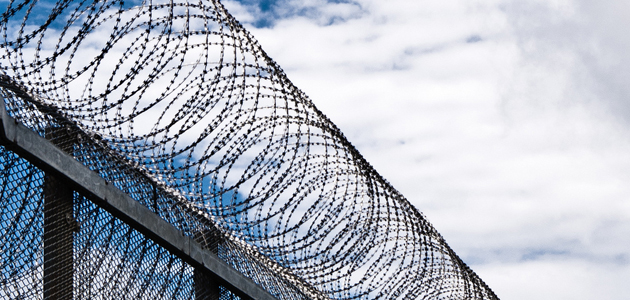Thought for the Week: Our common humanity
Kimmett Edgar and Juliet Lyon consider the common bonds between us

Prisons Week is a reminder of the common bonds between us and people in prison. The populist news media bombard us with the message that people in prison are dangerous, a threat to society and beyond redemption. Scaremongering by some politicians increases the erosive and damaging fear of crime that tempts us into ‘out of sight, out of mind’ punitive attitudes towards people in prison. Our common humanity is distorted by such fears.
Too often people in prison are caught up in a dreary cycle of persistent, petty offending often fuelled by addictions. They need not always be defined by their offending but rather by who they are and what they could become. A focus on skills not deficits shows that the people held in our prisons are poets and painters, cooks and carpenters. They are women who worry about their children’s schooling. They’re our younger brothers who dreamt of becoming a footballer before they got into trouble. They are Samaritans who reassure someone who is feeling desperate:
In these places, even though we find ourselves in these situations, there are brilliant writers and artists. Everybody somewhere inside them has got something that they are good at.
Many, also, have had experiences that have contributed to their slide into offending, such as childhood experience of abuse or neglect, mental health problems, or learning disabilities. Over half the women in prison report having suffered domestic violence and one in three had been sexually abused.
Swimming against the tide of media messages about dangerous villains, it becomes ever more difficult to imagine what it is like to be confined in a room with no door handle on the inside. If society is incapable of empathy, reintegration is impossible. In contrast, the Crime, Community and Justice Sub-Committee stated, ‘Justice should be compassionate, forgiving and healing – restorative, not retributive.’
It is encouraging that the government has recently announced its restorative justice action plan to raise awareness and build capacity for delivering it. Restorative justice, done well, gives people who have caused harm an opportunity to make amends to some extent. The process recognises the harm done, vindicating the victim’s experience. It invites the offender to take responsibility, thus affirming their common humanity. Reintegration is one of the outcomes, as restorative justice condemns the behaviour, but not the person.
A Prison Reform Trust report, jointly published with Clinks, found that, in addition to practical concerns such as housing or debt, prisoners approaching release wanted reassurance that they would be accepted back into society, that they would find a place where they belonged. Many are motivated to stop offending out of concern for their families:
It is not only us who are feeling it. People outside are feeling it more than us because we got family out there. So for that reason we should use this prison, a place to get our lives back together, so that we can go out there and be better in our society.
Too many of the messages conveyed by imprisonment are negative and likely to increase offending: banishment means you are unwanted; being barred from voting defines you as a non-person; being kept idle means you are worthless; being victimised by others means you have to develop a tough persona to survive. Prisons Week might remind people outside that people inside are people too. They are part of our community and, if they can see that society values our common humanity, it might lighten the burden of being outcast and lead to change.
Kimmett Edgar is head of research at the Prison Reform Trust and Juliet Lyon is its director.
You need to login to read subscriber-only content and/or comment on articles.
